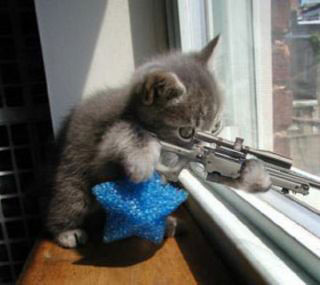Justice Scalia Begs the Question
Today, the Supreme Court upheld portions of the Child Pornography Protection Act.
I haven't read the case so I won't go into detail about it, nor do I have any opinions on it (yet). Basically, from what I can tell from the NY Times, the law prohibits people from offering photos of children in pornographic photos. Even if the photos are fake, or nonexistent. You could offer to send someone kiddie porn and not actually have kiddie porn. But you could be convicted for it.
Here's the rub for me: the following line from the article.
"Offers to engage in illegal transactions are categorically excluded from First Amendment protection," Justice Scalia wrote.
I find this logic circular. The First Amendment doesn't protect illegal speech, he says. So all Congress has to do to escape the reach of the First Amendment is to criminalize the speech.
Okay, that's a little simplistic. It's one level removed. Congress can criminalize any behavior it wants (within constitutional constraints), but talking about committing the crime is not protected by the First Amendment.
But what if, as here, the speech is intertwined with the purported crime? The crime, from what I can tell, includes offering to distribute or share child pornography. Doesn't that mean the speech is the crime? As so, how can you categorically remove that from First Amendment analysis?
Am I missing something here?


No comments:
Post a Comment